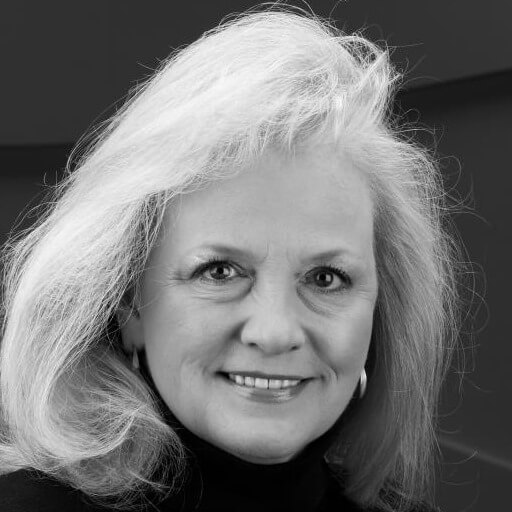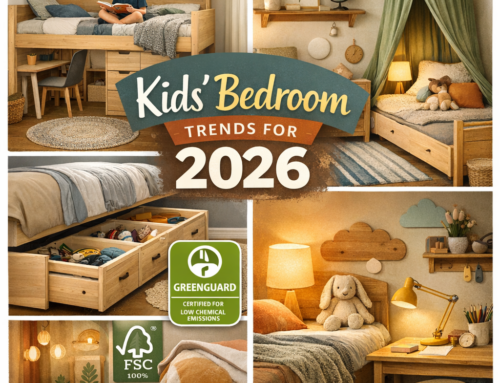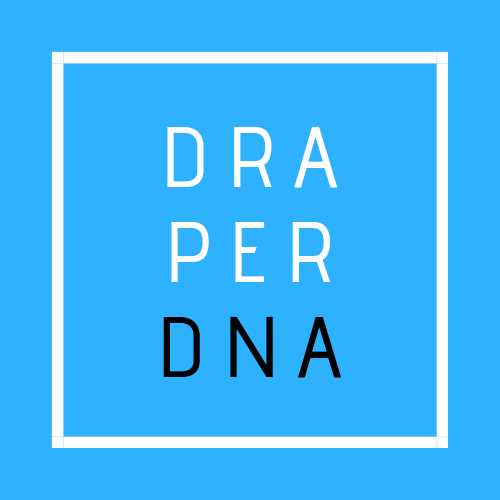There is a Difference featuring Heather McCune
March 8, 2022
Our series “There is a Difference” was launched one year ago during Women in Construction Week. We have interviewed more than two dozen people that working differently to achieve their success. We are celebrating the success of the series with our interview of one of the leaders of women in construction, Heather McCune. She has chosen a path less traveled within an industry that makes her an exception simply my being herself. As you will see, Heather has and is accomplishing so much for herself, her employer, and the industry. It is a pleasure to introduce you to our friend and difference maker, Heather McCune.
I am Heather McCune. I am Director of Marketing for Bassenian Lagoni Architects, out of Newport Beach, California. Prior to that, I was what we journalists called, on the right side of the storytelling world. I worked as a journalist for the preceding 20 plus years of my career. Finally, finding my way into the construction industry through Professional Builder Magazine. And that was the launchpad to my current role. I met the folks at Bassenian Lagoni, and suddenly I knew I could do something different, and made the leap to marketing.
The reason to be truthful, I went into journalism was, I couldn’t imagine going to work every day and using skills I’d already acquired. That to me sounded like the definition of boredom. When I found out if I went into journalism, I got to ask people the questions, I got to use those five Ws and H – who, what, when, where, why and how. And that was my meal ticket to learning something new every day. And interestingly, marketing provides that exact same opportunity, because to do it well, I have to learn about both the industry, the company and the people that we serve. So I’m never bored.
Will you tell us about your transition from editor to marketer?
Well, what’s funny about that is, your question is exactly the same question when I met with Bassenian Lagoni’s management team for the first time, that is exactly what they asked me. “How is it being an editor qualifies you to be a marketer?” And what’s funny after 16 years of doing the job, what I said to them still holds true today.
Curiosity is the key attribute of both professions. You need to want to know about people and their problems, and their processes, and then understand what you can do and what your company can do to help fill those gaps. And to provide the expertise and the service to solve their problems.
It’s exactly what the job of an editor is. The job of an editor is first to hire really good people. Second is to really study an industry, and craft editorial around it that will help solve their problems. As a marketer, my job is to study an industry, interpret what we do to those issues, and communicate the value proposition that we bring.
What makes you different as a marketer?
That’s really pretty easy. I listen first, I don’t assume. And maybe it is my journalistic training, that the people we want as clients want to be marketed to. First, they want to be listened to. Then they want to know how we can help them solve their problems, as opposed to how we can sell our services. When you’re marketing professional services as opposed to a specific product, there’s not something to sell. There’s creativity, there’s innovation, there’s a process for getting work done.
And all of those things are relevant to the people you’re selling to or marketing to. But more importantly, the messaging has to be in terms they use. Because a builder who builds a thousand homes a year versus a builder who builds a hundred homes a year, they think about all of those things very, very differently. And our job is to speak our message in the language that matters to them first, as opposed to the language that we think matters.
We have the tagline at our company that we developed, oh my gosh, maybe 10 years ago. And it’s creative, experienced and responsive, because it gives us the umbrella to craft our story in a way that fits every possible client and a lot of different situations.
What is your secret to success as a woman in a predominantly male industry like construction?
Well, interesting. Because when I started in this business 25 years ago, there weren’t a lot of women. And in truth, I didn’t see too terribly many. But two women sought me out on literally my second day as editor-in-chief at Professional Builder, and said, “We want to be a help to you. We want to be your mentor. We want to help you succeed in a business because…” In the words of one of them, “Damn it, it’s about time there’s a woman at Professional Builder Magazine.” And they made true their words.
So, a lot of the credit for how I navigated a male dominated industry goes to women who were trailblazers before me. Second, I go back to a word I used previously, it was curiosity. Instead of trying to tell people things, I asked people questions, and everybody likes to tell you their story. And if you let them tell you their story, that automatically creates a relationship. And then finally, fundamentally, I was always authentically myself, at times, that worked, at times, it didn’t. But it made it easy to figure out my path in this industry.
And then I just got involved, I just got involved in everything. I went to conferences over and over and over again, and you did the hard work. You walked into a cocktail party and you knew no one, and you found a way to introduce yourself and start a conversation. It wasn’t always easy, but it was sure worth the effort.
How do we attract more women into the construction industry?
We’ve got a long way to go. Women make up half of the population, women are 11% of the construction industry. We have a long way to go. Steps are already in place. I mean, I look at a group like NAHB’s Professional Women in Building, who has made it a 100% their mission to attract and support women in the industry, and women who should be in our industry.
There was a formal unveiling if you will, at the Builders’ Show of a book written for children, called The House That She Built, that documents a story. And man, talk about a tool to help start dialogue way sooner than it is ever been done before, it’s perfect. But the other side of The House That She Built storybook, is getting parents to accept that this is a place where their daughters can have a career and not just a job.
So, we have to do that job as well. There’s also just role models and mentors. We’ve talked and heard over and over again, the importance of seeing yourself to imagine how you would work. I mean, there are now women who certainly are leaders in our industry. There’s Alaina Money-Garman, there’s Joan Marcus Webb. There’s Karen McCaffery. There’s Nicole Burdette. These are all leaders at home building companies, who take seriously their responsibility to mentor and inspire other women to make a mark in this industry.
So, if those trends continue, I think we do have the power to change that percentage that I spoke of originally. There’s movement, and if that positive momentum continues, it’ll change.
As I think about your question, one of the things that kept jumping out at me is women have always been in this industry, it’s just women haven’t been leaders in this industry. And if you walk into a sales office at any model home complex, nine times out of 10, it’s a woman who’s going to greet you and sell you that house.
The difference being that the leadership side of things has always been male dominated, and is just slowly, slowly, slowly starting to change. And part of that is recognizing that the skill sets that women bring and the skill sets that men bring, aren’t always the same. And recognizing that, you know what? There’s value in this skill set that Jane or Joe brings, that might be complementary to each other.
Just because it’s always been, well, Joe comes from finance, he’s our next leader. You know what? As we continually push to move to, for lack of a better word, a more people friendly business, because the great resignation has forced us to do this. Some of those softer skills that haven’t had value certainly should be valued.
Do you think storytelling is important to you as a marketer and your customers?
I don’t think storytelling is important to me as a marketer. I think it’s my job as a marketer. It’s the first way we learned as human beings, and fundamentally that has not changed. We learned in the oral tradition of somebody telling us a story. And more importantly now than ever, a connection with another human being is vital to making sure your message is received.
And the way to create a connection is through a story, a shared experience, an illustration. Storytelling without it… without that, I don’t know if I would know how to do my job, it is that important to what we do. With selling professional services, it’s critical.
I mean, Bassenian Lagoni makes that easy for me because they’ve always had the notion that it’s the relationship first, and then the business. And you develop that relationship by sharing stories, by breaking bread, by being present professionally in each other’s lives. And finding new stories is what keeps me engaged in this job. Finding ways to tell the stories of our clients, of their successes, of problem solved, that’s the fun of the job. It’s awesome.
What’s your favorite story to tell others?
Okay. I liked that you ask this question because it gave me a trip down memory lane. I’ve been lucky. I’ve had so many moments and so many people in my career that I could tell stories about, but one that forever sticks in my head. I was at Pulte headquarters as an editor for Professional Builder, and happened to be waiting for one person to come into the conference room, blah, blah, blah, blah, blah. Long story short, in walks Bill Pulte, he just wanted to introduce himself.
We started talking. He said, “Do you have a minute? Can I show you something?” I go back to this man’s office. Now, mind you, he’s the CEO of the largest public home builder in the United States. His office is filled with products, and he takes 15 minutes to show me an idea he has for how to improve gutter assemblies, so that there’s less leakage. And his goal, he’s like, “I’m going to get there. I’m going to figure this out, so that we can build a house that’s going to last a hundred years.”
And I was just like… What I found fascinating in that moment is this man’s passion for his craft has not changed. From that first house he built however many years ago it was, to today. When quite honestly, he could walk away and be really happy. And what I learned in that moment was, it’s the passion that keeps me engaged with people in this industry. If he had just walked in and introduced himself and said, “Hey, if you need anything, let me know.” No, that wasn’t what he did. He took the time to share his passion. How cool was that?
We think is it cool that you have taken the time to share your story with us. Thank you, Heather.
You can watch the entire interview with Heather on the Draper DNA YouTube channel. Click here to take a look.





